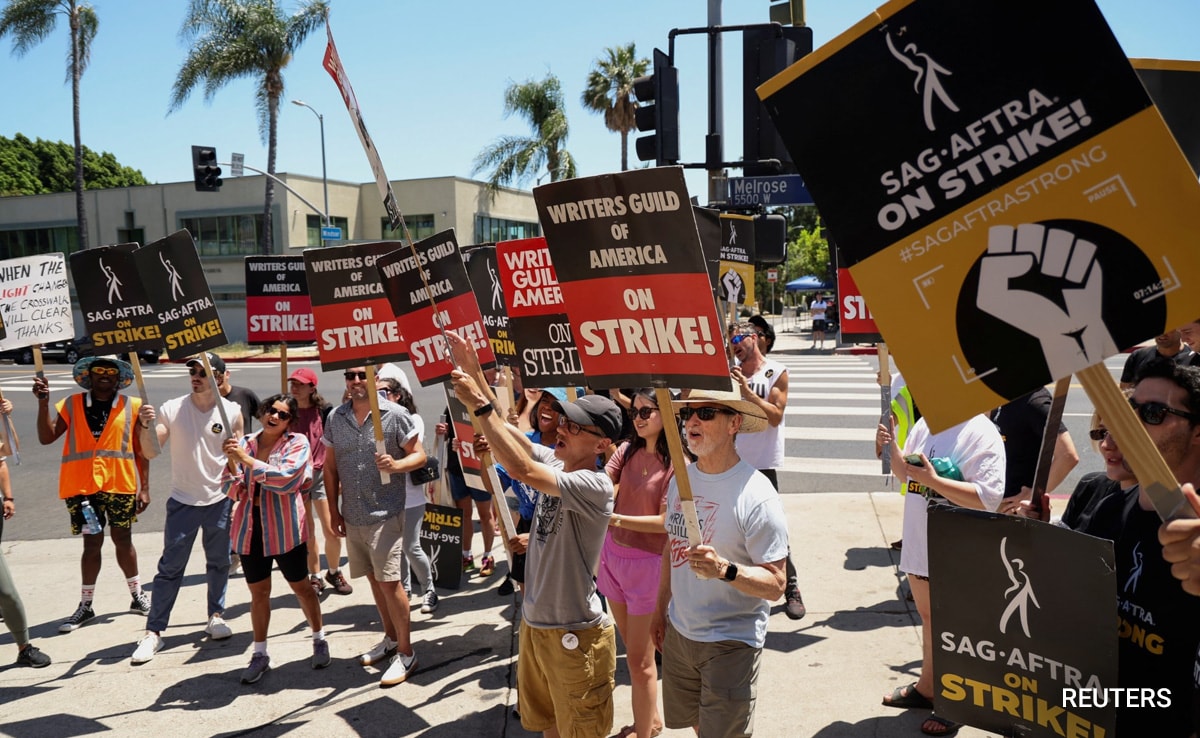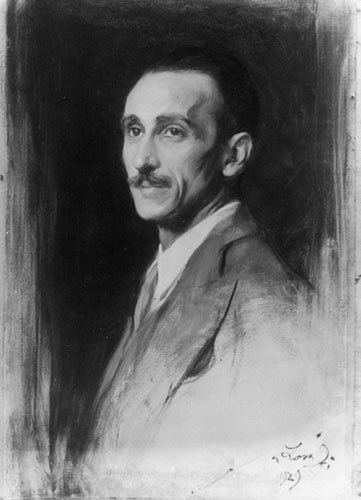Hollywood Shut Down: Writers And Actors On Strike

Table of Contents
The Writers Guild of America (WGA) Strike: Key Demands and Impacts
The WGA strike, which began in May 2023, highlights the significant challenges faced by writers in the rapidly evolving entertainment landscape. Their demands address critical issues impacting their livelihoods and the future of creative writing.
Fair Compensation and Residuals in the Streaming Era
The traditional television model, with its clear revenue streams and residuals, has been dramatically altered by the rise of streaming services. Streaming platforms operate on subscription models, often offering writers significantly lower compensation than traditional network television, and frequently eliminating residuals altogether. This shift has drastically reduced writers' income, making it harder to sustain a career in the industry.
- Demand: The WGA demands a fair share of streaming revenue, including a percentage of subscription fees and advertising revenue, to ensure writers receive appropriate compensation for their work.
- Demand: Increased minimum staffing levels on television shows to prevent exploitation and ensure quality control.
- Demand: A significant increase in minimum wages to reflect the rising cost of living and the increased workload demanded by streaming platforms.
The Rise of AI and its Threat to Writers
The WGA also expresses serious concerns about the increasing use of artificial intelligence in scriptwriting. The union fears that AI could be used to replace human writers, undermining their creative control and jeopardizing their jobs.
- Demand: The WGA seeks clear regulations and safeguards to prevent the exploitation of AI in scriptwriting, ensuring that human writers retain creative control and are not replaced by algorithms.
- Demand: The union is demanding transparency from studios about the use of AI in their processes and a clear framework for its ethical and responsible use.
- Demand: The WGA wants to ensure that AI is not used to diminish writers’ contributions or lower compensation.
Impact of the WGA Strike on Production
The WGA strike has already had a profound impact on Hollywood production. Numerous television shows and films have been delayed or cancelled, leading to widespread job losses beyond the writers themselves.
- Late-night talk shows have gone dark.
- Many scripted television series have halted production.
- Film projects have experienced significant delays, impacting release schedules and potentially causing budget overruns.
- The ripple effect extends to related industries, such as catering, transportation, and post-production services.
The SAG-AFTRA Strike: Actors' Concerns and Demands
The SAG-AFTRA strike, which began in July 2023, adds another layer of complexity to the crisis. Actors face similar challenges to writers, particularly concerning compensation and the impact of new technologies.
Fair Wages and Residuals in the Streaming Era
Actors, like writers, have seen their compensation significantly impacted by the transition to streaming. The traditional methods of calculating residuals are often inadequate in the streaming environment, leaving many actors with significantly less income than previously.
- Demand: SAG-AFTRA demands fair wages and residuals that reflect the actual viewership of their performances on streaming platforms.
- Demand: Increased transparency in the reporting of streaming revenue and the calculation of residuals.
- Demand: Improvements to minimum pay rates to reflect the increasing cost of living and the demands of modern production schedules.
Concerns Regarding AI and Self-Taping
SAG-AFTRA also expresses deep concerns about the use of AI to replace actors and the increasing prevalence of self-taping auditions. Self-taping, while offering some convenience, often lowers pay and working conditions for actors.
- Demand: SAG-AFTRA is fighting to prevent the use of actors' likenesses and performances without their consent and compensation through AI.
- Demand: The union seeks improved standards and fair compensation for self-tape auditions, which are frequently offered without appropriate pay or working conditions.
- Demand: Clear guidelines and regulations regarding the use of AI in performance capture and generation are necessary to protect the livelihoods of actors.
Impact of the SAG-AFTRA Strike on Production
The combined impact of the WGA and SAG-AFTRA strikes has brought almost all major film and television production to a complete halt. The consequences are far-reaching.
- Major film and television productions are indefinitely postponed.
- Post-production work on many projects has been significantly delayed or completely stalled.
- The economic impact on the Los Angeles area and the entertainment industry as a whole is substantial and likely to worsen.
- The long-term consequences for the industry are still unfolding.
Potential Resolutions and Long-Term Impacts of the Hollywood Strike
Resolving the Hollywood strike will require significant negotiations and compromises from both the unions and the studios. Potential outcomes range from minor concessions to significant shifts in industry practices.
- Potential Resolution: Reaching agreements on fairer compensation models that address the realities of the streaming era.
- Potential Resolution: Establishing regulations and guidelines for the use of AI in scriptwriting and performance.
- Potential Resolution: Improved working conditions and increased transparency in the entertainment industry.
The long-term impact of this strike could reshape the entertainment industry, leading to fairer compensation, improved working conditions, and a more sustainable future for writers and actors. It may also force the industry to confront the ethical and practical implications of AI in creative fields.
Conclusion:
The dual Hollywood strike by the WGA and SAG-AFTRA represents a critical moment for the entertainment industry. The unions' demands for fair compensation, residuals in the streaming era, and protection against the misuse of AI highlight the need for fundamental changes in how writers and actors are valued and compensated. The widespread disruption to film and television production underscores the significance of these issues. Stay updated on the Hollywood strike, learn more about the writers and actors’ demands, and support fair compensation in the entertainment industry. The future of creative storytelling depends on it.

Featured Posts
-
 Alterya Joins Chainalysis A Strategic Move In Blockchain Ai
Apr 26, 2025
Alterya Joins Chainalysis A Strategic Move In Blockchain Ai
Apr 26, 2025 -
 Nintendo Switch 2 Game Stop Preorder And My Experience
Apr 26, 2025
Nintendo Switch 2 Game Stop Preorder And My Experience
Apr 26, 2025 -
 Will Ukraine Join Nato Trumps View And Its Geopolitical Impact
Apr 26, 2025
Will Ukraine Join Nato Trumps View And Its Geopolitical Impact
Apr 26, 2025 -
 Vehicle Subsystem Issue Forces Blue Origin Launch Cancellation
Apr 26, 2025
Vehicle Subsystem Issue Forces Blue Origin Launch Cancellation
Apr 26, 2025 -
 Ahmed Hassanein An Improbable Journey To The Nfl Draft
Apr 26, 2025
Ahmed Hassanein An Improbable Journey To The Nfl Draft
Apr 26, 2025
Latest Posts
-
 Pegula Defeats Collins To Win Charleston Title
Apr 27, 2025
Pegula Defeats Collins To Win Charleston Title
Apr 27, 2025 -
 Charleston Tennis Pegula Beats Collins In Thrilling Match
Apr 27, 2025
Charleston Tennis Pegula Beats Collins In Thrilling Match
Apr 27, 2025 -
 Pegula Triumphs Charleston Open Update
Apr 27, 2025
Pegula Triumphs Charleston Open Update
Apr 27, 2025 -
 Charleston Tennis Pegula Claims Victory Against Collins
Apr 27, 2025
Charleston Tennis Pegula Claims Victory Against Collins
Apr 27, 2025 -
 Top Seed Pegula Triumphs Over Collins In Charleston Final
Apr 27, 2025
Top Seed Pegula Triumphs Over Collins In Charleston Final
Apr 27, 2025
